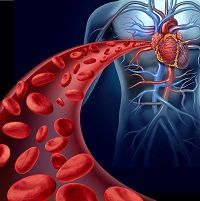Article
Anticytokines Shown To Reduce Cardiovascular Risks in RA Patients
Author(s):
Professor Aida Babaeva compared cardiovascular effects of immunotherapy plus standard treatments to those evident with the standard treatment alone, claiming the anticytokines doubled chances of reaching target blood pressure and more than halved risk of cardiovascular events.

At the recent Frontiers in Cardiovascular Biology meetings in Florence, hosted by the European Society of Cardiology, a Russian scientist presented evidence that a particular rheumatoid arthritis (RA) treatment may decrease risk of cardiovascular events while improving RA symptoms. Professor Aida Babaeva, head of the Department of Internal Medicine at Volgograd State Medical University, made the presentation, which compared cardiovascular effects of immunotherapy plus standard treatments to those evident with the standard treatment alone.
The study focused on a pair of extra low-dose anticytokine drugs, used in combination to suppress production of tumor necrosis factor (TNF) and interferon (IFN) and other agents, typically deployed by the immune system to protect the body, but which, in the case of RA, end up attacking healthy cells. By limiting the release of such cytokines, the inflammation and pain associated with RA can be reduced.
The study featured 68 patients and a three-year follow up period, over which those patients treated with the anticytokine drugs in combination with standard disease-modifying treatments (n=38) saw less than half the risk (13%) of cardiovascular events like unstable angina or deterioration of chronic heart failure as opposed to the standard treatment alone group (n=30, 37% chance of cardiovascular event). The former also reached their target blood pressure 71% of the time, as opposed to just 32% of the time with the latter.
Babaeva made sure to note that “this doesn’t mean that the two drugs directly impact on blood pressure. But the combination can improve endothelial function and it could be that blood pressure is more stable when disease activity is low.” RA compromises the endothelium, or blood vessel lining, opening the door to lipid and plaque accumulation and creating the correlation between RA and increased risk for blood clots and thrombosis, among other things.
Though successful in assuaging some RA symptoms and lowering cardiovascular risks, the treatment is not recommended for all, and Babaeva thinks it’s most useful for those with moderate RA and no severe complications.





